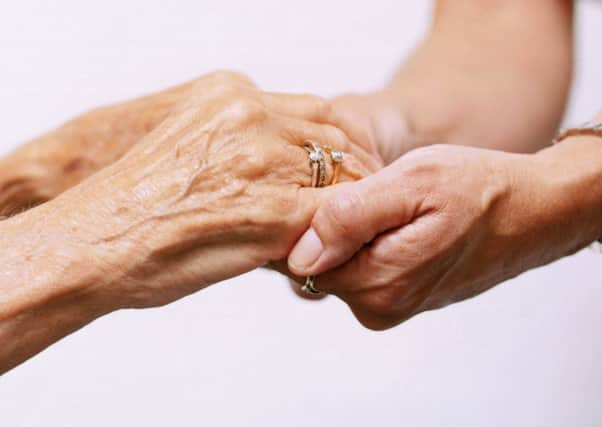Deaths at home falling despite most wishing to end lives there


Researchers described a “mismatch” between the reality and dying people’s last wishes as the proportion of home deaths fell from 30 per cent in 2000 to just 23 per cent in 2010 among 20,000 people in Dumfries and Galloway. The findings are likely to have resonance across Scotland as death at home is often used as a marker of the quality of end-of-life care, according to the team from Glasgow University.
It comes after ministers announced a £3.5 million boost for end-of-life care to ensure everyone is able to have the death they want regardless of diagnosis, age or background.
Advertisement
Hide AdAdvertisement
Hide AdDr Chris Isles, a consultant at NHS Dumfries and Galloway and Emeritus Professor at Glasgow University, said: “Lots of evidence tells us that home is the place that most people say they would like to die.
“However, the proportion of people dying at home fell during our survey which means there is a mismatch between stated preference for place of death and where death actually occurs.”
Those suffering from stroke or dementia were the least likely to die in their own homes, while patients with cancer and heart disease were most likely to end their lives at home, the study published today revealed.
The findings will help to inform health and social care providers as well as allowing patients to advocate for their wishes, said Professor David Clark, founder of Glasgow University’s End of Life Studies Group.
Campaigners said the research showed how important it is to support people’s wishes in the face of rising numbers of older people living with multiple conditions.Susan Lowes, Marie Curie policy and public affairs manager for Scotland, said: “Studies like these are vital to help us understand the local picture, and are often reflective of Scotland as a whole.
“Of the 54,000 people who die in Scotland every year we know around 40,000 will need some form of palliative care. The majority of those would prefer to be cared for and to die at home.
Health secretary Shona Robison said ensuring patients wishes are taken into account was a key part of the Scottish Goverment’s plans for palliative care.